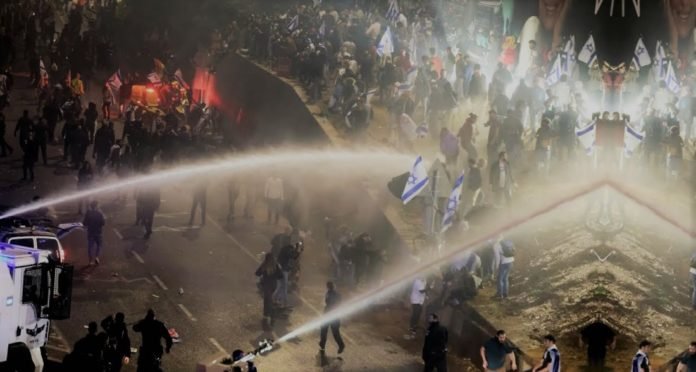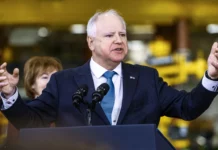Delay of Israeli Judicial Overhaul amidst Massive Protests: Netanyahu’s Decision and Repercussions
On the 22nd of March 2021, Israeli Prime Minister Benjamin Netanyahu announced a delay in the implementation of his plans to weaken the judiciary, in response to massive strikes and protests that brought the nation to a standstill. While Netanyahu cited the need for a proper debate, he expressed the belief that the overhaul remained necessary, despite the public’s concerns.
Histadrut Labor Union and General Strike
Following the announcement, the Histadrut labor union leader, Arnon Bar-David, called off the planned general strike, but issued a warning that aggressive legislation would be met with another strike. The planned overhaul proposed the most significant reform of the Israeli legal system since the country’s inception, with a slew of controversial changes, including allowing a simple Knesset majority to overturn Supreme Court rulings, altering the judge selection process, and eliminating independent legal advisers for government ministries.
National Guard and Far-Right Jewish Power Party
In a move to delay the legislation, Netanyahu reached an agreement with the far-right Jewish Power party, which would create a National Guard under the leadership of party leader and National Security Minister, Itamar Ben Gvir. The decision was criticized by former Prime Minister Ehud Barak as a “lunatic step of Netanyahu,” citing Ben Gvir’s extensive criminal record.
US Officials and Original Proposal
US officials expressed concern over the proposed changes, emphasizing the need for compromise. The proposed overhaul caused months of continuous protests, both nationally and internationally, as well as unrest within the country. Defense Minister Yoav Gallant was fired for being the first cabinet member to call for a pause on the controversial plans, leading to widespread condemnation from Netanyahu’s opponents and several former Israeli prime ministers.
Protests and Political Turmoil
Yair Lapid, a former Prime Minister, spoke out at the Knesset, expressing concerns and stating, “We’ve never been closer to falling apart. Our national security is at risk, our economy is crumbling, our foreign relations are at their lowest point ever, we don’t know what to say to our children about their future in this country. We have been taken hostage by a bunch of extremists with no brakes and no boundaries.”
New Law Protecting Prime Ministers
As the crisis unfolded, Netanyahu’s government passed a law making it more difficult to remove prime ministers from office, seen as a self-preservation tactic. The law requires the prime minister or cabinet (with a two-thirds majority) to declare a leader unfit, followed by a supermajority in parliament for ratification.
Netanyahu’s Trial
Netanyahu is the first sitting Israeli prime minister to stand trial, facing charges of fraud, breach of trust, and bribery. He has consistently denied any wrongdoing. The ongoing trial and proposed judicial overhaul have put Netanyahu in the spotlight and contributed to the political turmoil in Israel. As the situation continues to develop, both domestic and international observers will be closely monitoring the events and their potential implications for the Israeli political landscape.








